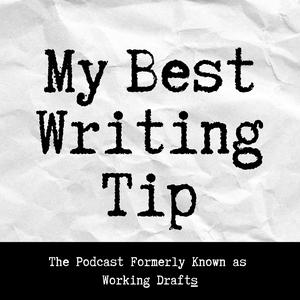A separate description for a trailer episode feels a little silly, so here’s the transcript instead.
--
Hi, my name is Ted Fox, and I’m the author of the novels Schooled and Date Week. And for close to three years, I’ve been the host of this podcast, which up ‘til now has been called Working Drafts.
I’ll be honest with you: It’s been fun. I’ve gotten to talk with a lot of fellow writers about their work, with a focus not so much on their finished products but more the process they go through to get there.
If you’ve listened to all or most or even one of those episodes—thank you.
Maybe the biggest takeaway has been that there’s no one “right” way to write. We all have our go-to moves as well as the things that just don’t work for us the way they do for others. And sometimes what works for one project doesn’t work for the next.
But. As I’ve had these conversations, I realized there is one part of my process that I carry from book to book. It might not be for everyone. But it is my best writing tip.
So in January 2026, I did a solo podcast about it. And that got me thinking: What if I kept talking to other writers about the craft of writing, but specifically through the lens of asking them to share their best writing tip?
I liked the idea so much I’ve changed the name of the show. Working Drafts is now My Best Writing Tip. It’s the same feed, and new episodes will continue to published each month on the 15th.
All episodes, both of the new and previous iterations of the show, are available on my website, thetedfox.com, and most places you get your podcasts.
I’d say “wherever you get your podcasts,” but that’s probably still not true.
Information for requesting transcripts as well as more details about Ted and his books are available on his website, thetedfox.com.


